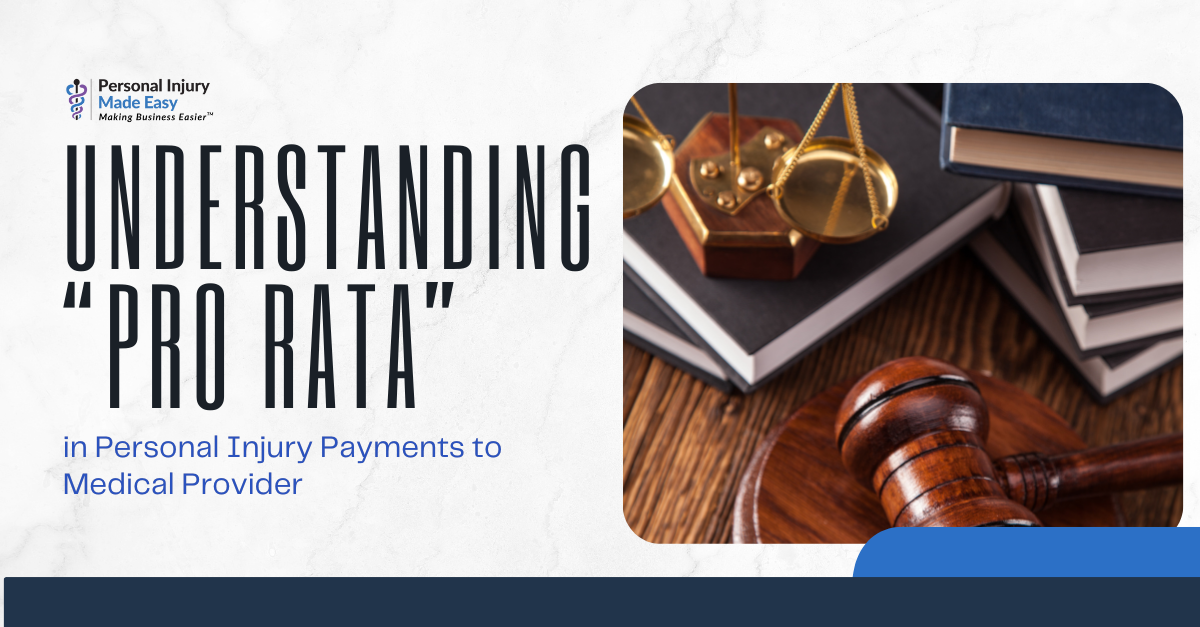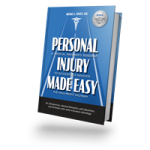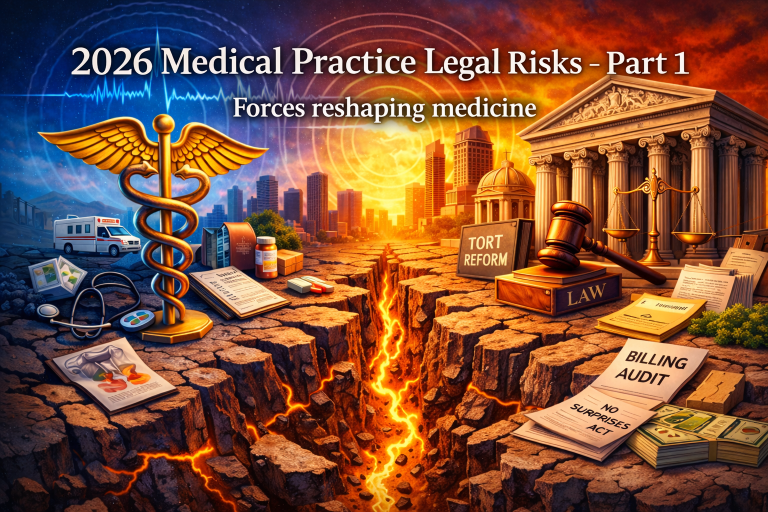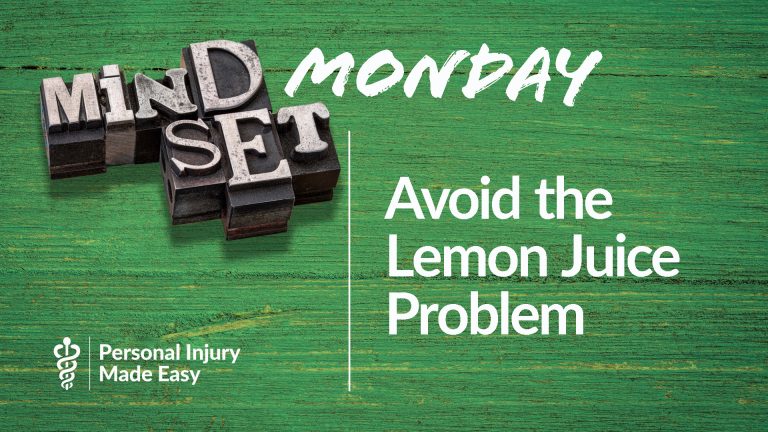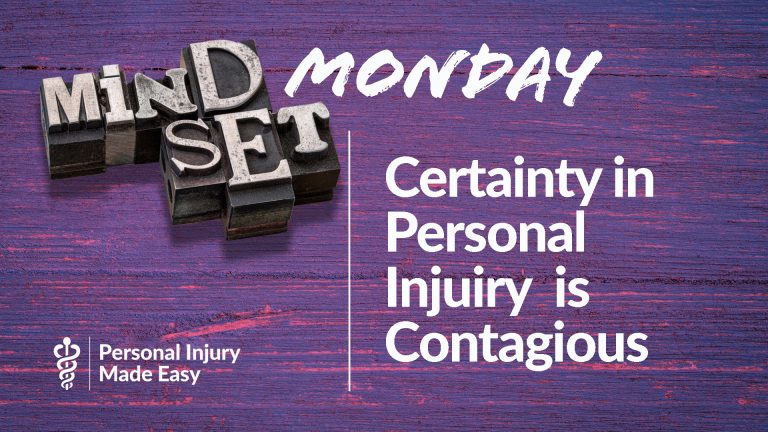
Navigate the Complexities of Interpleader in Personal Injury
Because you put fear aside allowing for better navigation of sometimes stormy waters
As medical providers, your focus is on healing and caring for your patients—but understanding some of the legal challenges that can arise in personal injury (PI) claims will help you protect your rights and ensure that you’re paid for the services you’ve rendered. One increasingly used or threatened tactic by personal PI attorneys is Interpleader.
While it’s understandable to think, “I’m not a lawyer; why should I care about a legal process?”—the truth is, Interpleaders can directly affect your ability to collect payment for medical services in personal injury cases. And the earlier you understand this concept, the better equipped you’ll be to navigate these complex and sometimes stormy waters.
What is an Interpleader?
At its core, an Interpleader is a legal action filed by an attorney to protect themselves when there are competing claims to monies they hold “in trust”—in personal injury, it’s the proceeds from settlement, jury trial, court or an arbitrator decision. It’s a fairness-based legal tool designed to protect attorneys and help determine who is entitled to the funds when there’s a dispute between claimants, such as medical providers, insurance companies, funding companies and the injured patient.
Why Should You Care?
Interpleaders can protect your interests. No one likes to chase patients who often have no funds or are “judgment proof.”
However, interpleaders result in additional delays in receiving payment for the services you’ve provided. More than just delays, Interpleader can cause reduced payments or forfeited repayment rights.
With that said, the actual filing of Interpleaders is unusual. What will be far more common is the “threat” of Interpleader by attorneys. It’s a growing tactic by law firms to scare medical providers into capitulating to accept low ball bill resolution offers. Legal actions are scary for anyone. Don’t be afraid. Be educated.
Your unique state law may have specifics for Interpleader, or, in states with mandated ‘pro rata’ (e.g., Missouri), this will not affect you nearly as often. Still, knowledge is power. And acting on that knowledge is your super power.
Practical Strategies for Navigating Interpleader Actions
While understanding the basic mechanics of Interpleaders is important, here are five strategies to consider, to better protect your interests. There are too many to put into a blog, but these five can help:
1. The “Right” Lien:
The terms of your lien agreement are important in the event of an Interpleader. The court will focus on the specific lien terms when determining who gets paid and how much. Make sure your lien is clear, precise, and legally enforceable. And even if the attorney provides only a letter of protection, you should be having your patient sign a full, comprehensive medical lien agreement.
Most lien agreement are deficient. I know because I was tired of modifying every lien I saw in my early years championing medical providers, and decided it was more efficient and effective to just create a far better protective document which I update and modify annually as I find new tricks by attorneys. The “right” lien matters in PI and is the most important document affecting your payment rights, including when it comes to Interpleader.
2. Educate the Attorney:
What you say will educate legal experts … are you kidding? I’m serious.
Unfortunately, most attorneys and even fewer legal staff understand Interpleader and what it really does, how it really works, and the results it really provides. The law firm generally needs to name their own client as a defendant who now may have to hire another attorney. The court’s apportionment of those proceeds is not usually “full and final” and the creditor (including you) can seek the balance remaining in another post-Interpleader action. Attorneys mistakenly believe they will get all their time dealing with the Interpleader paid for, as Court’s usually award only a small amount in attorney fees because the action is to protect the attorney.
It’s important to educate the attorney and law firm staffer about the Interpleader process and your legal rights to be paid per your unique state laws. That education may also include your patient who likely has no idea what their attorney is planning or the effect upon them.
3. Review the “Prayer for Relief” in the Interpleader Complaint:
If an Interpleader is filed, review the complaint carefully especially the “prayer for relief.” That’s where the attorney is telling the court what it wants the court to eventually do. And here is where you will find if the attorney is merely seeking to protect themselves as Interpleader was designed, or if they are overreaching and exposing you to more than you want. Overreaching can potentially include seeking to waive your entire bill if you don’t appear in the Interpleader, or preventing you from seeking to enforce your bill anywhere, or seeking damages against you personally. Understanding what the attorney is asking of the court will help you weigh the risks and potential benefits and act accordingly.
4. Put Fear Aside and Embrace Knowledge:
Don’t let the fear of the unknown paralyze you—embrace the knowledge. You don’t have to be an expert. But the more informed you are, the better equipped you will be to maximize your opportunities and reduce your risks.
5. Balance the Risk-Benefit & Be Proactive, Informed, and Strategic:
This is an area of risk-benefit analysis. The larger your bill, he more you might love Interpleader which protects the funds. You may want to ignore these proceedings if a small bill or if the settlement was small and there isn’t much money for any meaningful payout—assuming the attorney hasn’t overreached in that prayer for relief. You often have alternatives, including filing your own separate enforcement action in small claims for small bills or your normal civil court proceedings with the larger bills. Only you can weigh the risk-benefit involved.
If the attorney has overreached in the prayer for relief, you would be wise to act, either seeking to get the attorney to correct errors, or personal attacks on their own, or through your own attorney.
In the end, success in navigating an Interpleader comes down to being informed, proactive and strategic. The more you understand the process, the better you can minimize filings, avoid overreaching attorneys, and maximize your chance of getting paid for your services.
Conclusion
While Interpleaders are a complex and sometimes frustrating part of personal injury cases, put fear aside. By employing these and other strategies you can often turn a threat of Interpleader to your payment advantage. Understanding the legal waters can make all the difference navigating the PI seas even when those seas get stormy.




